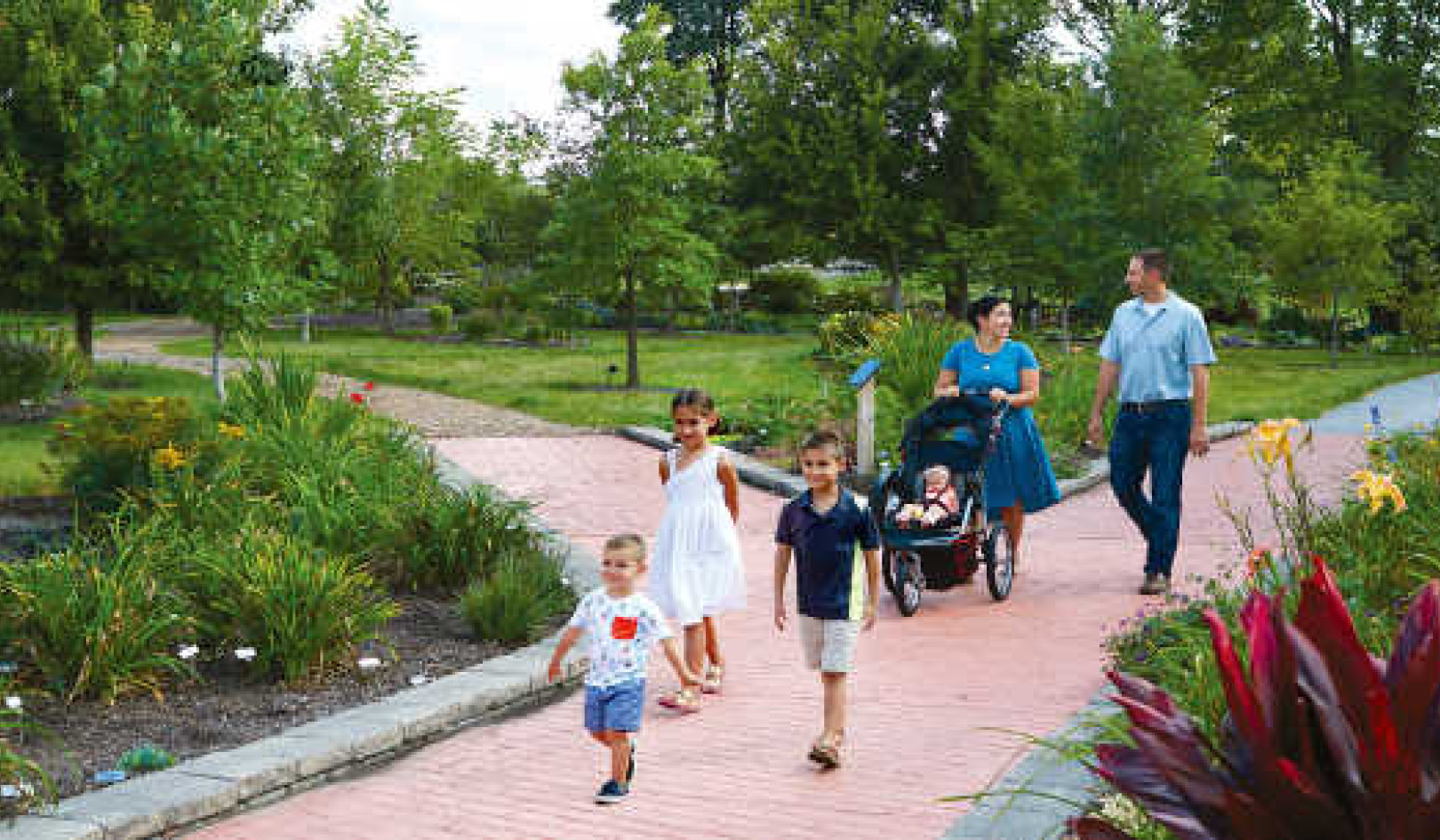
The self-expansion provided by a strong relationship has benefits for the relationship itself. MoMo Productions/DigitalVision via Getty Images
It’s common to want to become a better version of yourself. Much like the desires to eat, drink and avoid harm, human beings also experience a fundamental need to learn, grow and improve – what psychologists call self-expansion.
Consider your favorite activities. Things like reading a book, spending time in nature, volunteering with a new organization, taking a class, traveling, trying a new restaurant, exercising or watching a documentary all broaden the self. Those experiences add new knowledge, skills, perspectives and identities. When who you are as a person expands, you enhance your competence and capabilities and increase your ability to meet new challenges and accomplish new goals.
Of course, you can achieve self-expansion on your own by trying new and interesting activities (like playing Wordle), learning new things (like advancing through a language app) or working on a skill (like practicing meditation). Research confirms that these kinds of activities help individuals expand themselves, which encourages them to put forth more effort on subsequent challenging tasks.
Interestingly, romantic relationships can also be a key source of growth for people. As a relationship scientist for over 20 years, I’ve studied the effects all kinds of romantic relationships can have on the self. Today’s modern couples hold high expectations for a partner’s role in one’s own self-development.
Growing your relationship and expanding competence
Falling in love feels good, and spending time with a romantic partner is enjoyable, but love’s benefits run even deeper. People tend to value partners who help them become a better version of themselves.
One way to optimize self-growth in your relationship is by sharing in your partner’s unique interests and skills. When “me” becomes “we,” partners blend their self-concepts and include the other in the self. That merging encourages partners to take on each other’s characteristics, quirks, interests and abilities to some extent. Romantic partners inevitably have different life experiences, knowledge bases, perspectives and skills. Each area is an opportunity for growth.
For example, if your partner has a better sense of humor than you do, over time, yours will likely improve. If they have an eye for interior design, your ability to put together a room will evolve. A partner’s differing views on climate change, politics or religion will grant you new perspectives and a deeper understanding of those topics. Your relationship helps you become a better person.
This isn’t to say that individuals should try to completely merge, running the risk of losing themselves. Rather, each person can maintain their own identity while augmenting it with desirable elements from their partner.
Relationship consequences of more or less
The science makes it abundantly clear that couples with more self-expansion are better relationships. Specifically, people who report more self-expansion in their relationship also report more passionate love, relationship satisfaction and commitment. It’s also associated with more physical affection, greater sexual desire, less conflict and couples being happier with their sex life.
Because self-expansion is so critical, when expanding relationships end, participants describe feeling like they have lost a part of themselves. Importantly, when less-expanding relationships break up, individuals experience positive emotions and growth.
When a relationship provides insufficient expansion, it can feel like it’s stuck in a rut. That stagnant malaise has consequences. Research finds that married couples who at one point indicated more boredom in their current relationship also reported less marital satisfaction nine years later. Insufficient relationship self-expansion also encourages people to have more of a wandering eye and pay more attention to alternative partners, increases susceptibility to cheating on one’s partner, lowers sexual desire and comes with a greater likelihood of breakup.
How does your relationship measure up?
Maybe you’re now wondering how your own relationship is doing on this front. To provide some insight, I created the Sustainable Marriage Quiz. On a scale from 1 to 7, with 1 being “very little” and 7 being “very much,” answer these questions:
- How much does being with your partner result in you having new experiences?
- When you are with your partner, do you feel a greater awareness of things because of them?
- How much does your partner increase your ability to accomplish new things?
- How much does your partner help to expand your sense of the kind of person you are?
- How much do you see your partner as a way to expand your own capabilities?
- How much do your partner’s strengths as a person (skills, abilities, etc.) compensate for some of your own weaknesses as a person?
- How much do you feel that you have a larger perspective on things because of your partner?
- How much has being with your partner resulted in your learning new things?
- How much has knowing your partner made you a better person?
- How much does your partner increase your knowledge?
Before adding up your score, know that these categories are generalizations. They suggest where your relationship may need attention, but also where it’s already strong. Relationships are complicated, so you should see your score for what it is: one small piece of the puzzle about what makes your relationship work.
- 60 and above – Highly Expansive. Your relationship provides lots of new experiences and helps you reach new goals. As a result, you likely have a more fulfilling and sustainable relationship.
- 45 to 60 – Moderately Expanding. Your relationship has produced some new experiences and additions to your self-concept, but you have some room for improvement.
- Below 45 — Low Expansion. Currently your relationship isn’t creating many opportunities to increase your knowledge or enhance you. Consequently you likely aren’t improving yourself as much as you could. Consider making an effort to seek out more new and interesting experiences with your partner. You may even rethink if this is the right partner for you.
What makes a relationship great? While there are many factors to consider, one area deserves more attention: how much it helps you grow. A relationship that fosters self-expansion will make you want to be a better person, help you increase your knowledge, build your skills, enhance your capabilities and broaden your perspectives.
About The Author
Gary W. Lewandowski Jr., Professor of Psychology, Monmouth University
This article is republished from The Conversation under a Creative Commons license. Read the original article.

Related Books:
The Five Love Languages: The Secret to Love That Lasts
by Gary Chapman
This book explores the concept of "love languages," or the ways in which individuals give and receive love, and offers advice for building strong relationships based on mutual understanding and respect.
Click for more info or to order
The Seven Principles for Making Marriage Work: A Practical Guide from the Country's Foremost Relationship Expert
by John M. Gottman and Nan Silver
The authors, leading relationship experts, offer advice for building a successful marriage based on research and practice, including tips for communication, conflict resolution, and emotional connection.
Click for more info or to order
Come as You Are: The Surprising New Science that Will Transform Your Sex Life
by Emily Nagoski
This book explores the science of sexual desire and offers insights and strategies for enhancing sexual pleasure and connection in relationships.
Click for more info or to order
Attached: The New Science of Adult Attachment and How It Can Help You Find—and Keep—Love
by Amir Levine and Rachel Heller
This book explores the science of adult attachment and offers insights and strategies for building healthy and fulfilling relationships.
Click for more info or to order
The Relationship Cure: A 5 Step Guide to Strengthening Your Marriage, Family, and Friendships
by John M. Gottman
The author, a leading relationship expert, offers a 5-step guide for building stronger and more meaningful relationships with loved ones, based on principles of emotional connection and empathy.























